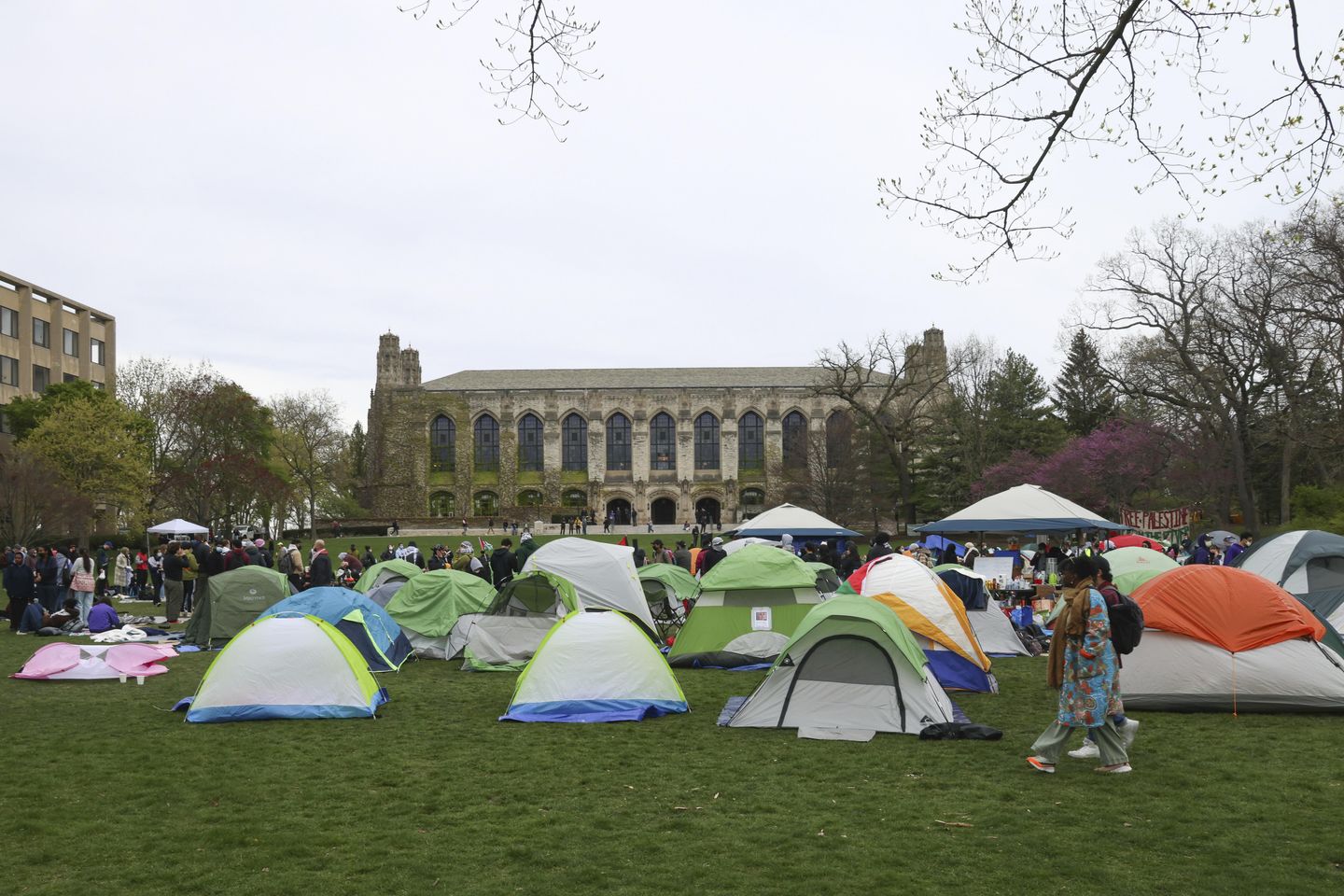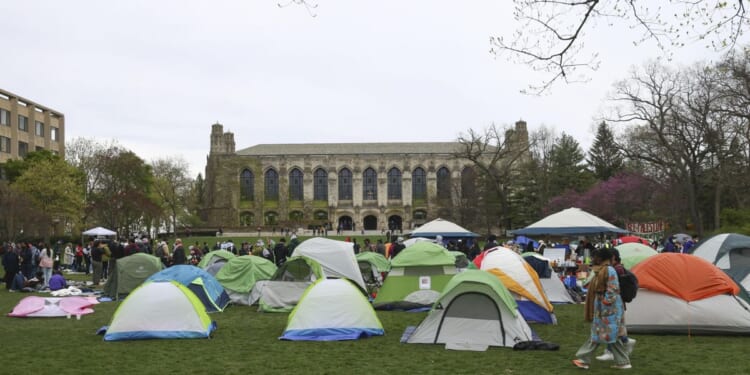
Northwestern University’s decision to cut a deal with anti-Israel student protesters may have created more problems than it solved.
The House Education and the Workforce Committee added Northwestern to its list of universities under investigation for campus antisemitism, accusing the leadership of caving in to campus protesters with its “shameful agreement” agreeing to fund Palestinian students and faculty in exchange for removing tents set up to protest Israel’s war with Palestinians in the Gaza Strip.
Committee Chairwoman Virginia Foxx gave the Illinois university until May 17 to turn over documents, board minutes and disciplinary records related to the “Northwestern Liberated Zone,” saying that the demonstrations “disrupted campus life and became a hotspot for pervasive antisemitic harassment and hostility.”
“Rather than enforcing University rules and disciplining those who violated them, Northwestern’s leaders surrendered to the violators in a shameful agreement,” the Tennessee Republican wrote in the Friday letter to Northwestern President Michael Schill and Board of Trustees Chair Peter Barris.
Mr. Schill is slated to appear before the committee along with the presidents of Rutgers University and the University of California, Los Angeles, at its May 23 hearing “Calling for Accountability: Stopping Antisemitic College Chaos.”
Last week, the Equal Protection Project headed by Cornell Law School professor William Jacobson filed a federal complaint against Northwestern, accusing the university of violating Title VI by offering preferences based on national origin and ethnicity.
The university agreed to give full undergraduate scholarships to five Palestinian students; fund positions for two visiting Palestinian faculty; provide an “immediate temporary space for MENA/Muslim students;” and renovate a house for “MENA/Muslim students.” The acronym stands for “Middle East and North Africa.”
In exchange, student protesters encamped at Deering Meadow, a popular campus gathering spot, agreed to remove all but one tent, keep outsiders out of the protest area, and obtain advance approval for amplifiers and sound devices. The agreement runs through June 1, the end of the spring semester.
The university also agreed to reestablish its Advisory Committee on Investment Responsibility, offering pro-Gaza protesters a formal path to seek divestment of the school’s endowment holdings from Israel, their primary demand.
The university also said it would “examine campus dining services, seemingly in response to [Students for Justice in Palestine’s] efforts to ban Sabra hummus,” which is made in Israel, said Ms. Foxx.
.@NorthwesternU leaders have not only failed to protect Jewish students from antisemitism on campus, they’ve also surrendered to the malefactors responsible for this hatred & chaos.
The Cmte is demanding answers for this unacceptable dereliction of duty. https://t.co/cf6b4swdao pic.twitter.com/DjMvTyCxHD
— House Committee on Education & the Workforce (@EdWorkforceCmte) May 10, 2024
Seven members of the President’s Advisory Committee on Preventing Antisemitism and Hate resigned in protest, saying they were not consulted, causing the committee to disband.
The university said the deal “was forged by the hard work of students and faculty working closely with members of the administration to help ensure that the violence and escalation we have seen elsewhere does not happen here at Northwestern.”
Even so, the committee listed numerous examples of antisemitic harassment, including displays of signs showing a Star of David with a slash through it, Jewish students being spat at and told they should be “gassed,” and graffiti on a campus building saying “Death 2 Israel.”
The Anti-Defamation League, the Brandeis Center and the pro-Israel student group StandWithUs called on Mr. Schill to “resign immediately” after the agreement was reached, while Northwestern’s Students for Justice in Palestine hailed it as a “landmark victory.”
“As the first private university in the nation to make such a commitment, this stride toward dismantling the financial support systems that underpin the injustices we seek to disassemble holds power to create precedent for other institutions,” said the Students for Justice in Palestine in an April 30 statement.
Other universities have sought to negotiate with anti-Israel protesters, including Columbia, the University of Southern California, UCLA and New York University, but ultimately brought in police to clear out the unauthorized encampments and reestablish order on campus.
The House committee is also investigating antisemitism on campus at Harvard, the Massachusetts Institute of Technology, Rutgers University, the University of Pennsylvania and the University of California, Berkeley.












